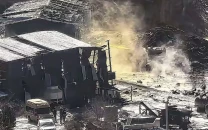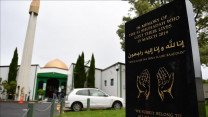Israel launches strikes on Iran; Tehran braces for retaliatory response
No US role in Israeli assault; Iran hears explosions, raises regional security alarms swiftly

In a significant escalation, Israel confirmed on Friday that it had launched an attack targeting Iran, while Iranian media reported that explosions were audible in Tehran. The incident unfolded amid rising tensions linked to ongoing US diplomatic efforts aimed at persuading Iran to cease the enrichment of materials that could be used to build a nuclear weapon. In response to potential Iranian retaliation, Israel declared a state of emergency, anticipating missile and drone attacks from Tehran.
"Following the preemptive strike by the State of Israel against Iran, a missile and UAV (drone) attack against the State of Israel and its civilian population is expected in the immediate timeframe," Defence Minister Israel Katz said in a statement.
According to two American officials speaking on the condition of anonymity, Israel had initiated strikes against Iran. The officials clarified that the United States had neither participated in nor supported the Israeli operation. They refrained from providing specific operational details.
US and Iranian officials were scheduled to hold a sixth round of talks on Tehran's escalating uranium enrichment programme in Oman on Sunday, according to officials from both countries and their Omani mediators. But the talks have appeared to be deadlocked.
Trump said on Thursday an Israeli strike on Iran "could very well happen" but reiterated his hopes for a peaceful resolution.
US intelligence had indicated that Israel was making preparations for a strike against Iran's nuclear facilities, and US officials said on condition of anonymity that Israel could attack in the coming days.
Israel has long discussed striking its longtime foe Iran in an effort to block Tehran from developing a nuclear weapon.
The US military is planning for the full range of contingencies in the Middle East, including the possibility that it might have to help evacuate American civilians, a US official told Reuters, speaking on condition of anonymity.
In a notable prior instance of hostilities, Israel was widely believed to be behind a drone strike on an Iranian military facility in the city of Isfahan in January 2023. The target was a defence ministry complex reportedly involved in drone and missile production. While Iran downplayed the damage, claiming that air defences had intercepted most of the drones, Western intelligence sources suggested that the attack was part of a broader Israeli strategy to curb Iran's military development, particularly its UAV and nuclear infrastructure.
Additionally, in April 2024, Israel was suspected of launching a cyberattack that temporarily disrupted operations at Iran’s Natanz nuclear facility, a key site for uranium enrichment. The disruption came shortly after Tehran accelerated its nuclear programme following a breakdown in talks with Western powers.
Although Israel did not publicly claim responsibility, intelligence sources and analysts noted the precision and timing bore hallmarks of previous Israeli covert operations aimed at impeding Iran's nuclear ambitions.




















COMMENTS
Comments are moderated and generally will be posted if they are on-topic and not abusive.
For more information, please see our Comments FAQ